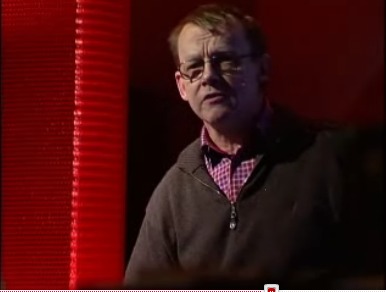[[ZEITGEIST]] The Power of Political Correctness
The Power of Political CorrectnessThe recent hoo-ha over allegations of racism in celebrity Big Brother, highlights that racism and bullying is endemic in British culture. Well, duh! Of course it is, and it would be difficult to imagine a scenario where it would be otherwise. People have always been singled out because of difference. There are many examples of this, not just in human social interactions, but in animals societies also. This is a fundamental aspect of our behaviour and, in a way, it is good that a programme like
Celebrity Big Brother brings this to our attention. Because I am not for one moment condoning the behaviours of Jade Goody et al, or even excusing it, but pointing out that the first thing that needs to be done to address questions of racism and bullying is to recognise that we are all racists and bullies and only then can we think about bringing this aspect of our being into full consciousness and scrutiny.
However, another aspect of this story has not been explored so far in the British media and I find that surprising. The aspect I am talking about is political correctness. How often is it that you hear in the press that some scheme or policy is "political correctness gone mad," the accusation is such a favourite of right-wing publications that it almost approaches a vaudeville routine at times. However, despite the Jade Goody incident being, if we apply the criteria, an almost textbook case of 'political correctness gone mad,' not one Daily Mail headline or leader column has pointed this out. Not one. Why is this? Well to put simply, it is the power of political correctness. The issue of race today has assumed the status of something so untouchable and so policed that no one (except for fanaticists like the members of the British National Party) will consciously say anything that they think will be perceive as being racist. Think of the stigma the 'n' word now attracts. To think that even a few decades ago it could have been said on telelvision or film without a whisper of complaint. For example, check out the
dog's name in the film
The Dambusters (1954), if you can find an uncensored copy that it!
Is this a good thing?
Well yes and no. One thing it tends to confirm is that the rationale upon which political correctness is theoretically grounded is correct. That is to say, semiotics. Semiotics teaches us, rather than seeing the language representation as trivial and not reflecting the values of a culture, that a culture’s values are in fact determined by its language and its representations. Ferdinand de Saussure said in the Course of General Linguistics that things in the real world only take on their meaning after we have named them, because it is only in the naming that their differences from other things are fixed by language into the very qualities which make them conceptually distinct. Words therefore cannot represent ideas fixed in advance, when such ideas are themselves values emanating from a language system (and we can extend this to apply to other representational systems as well). This implies that a show like
The Black and White Minstrel Show actually influences the racist values of its audience and the way UK culture chooses to see black people within in a very narrow and demeaning frame of representation. And it also implies that mainstream representations do contribute to a large extent to the way we stereotype these people. That is to say, restrict the way in which they
do appear to us, in advance of the potentially limitless ways they
could appear to us if there were no stereotypes in place).
Of course today, the
Black and White Minstrel Show and other dreadful excuses for entertainment like
Mind Your Language have been consigned to the dustbin of history, (they only live on ironically now in shows like
Little Britain - ha ha!). But people of my generation watched those shows and, to an extent, it can be argued that they have left their mark on us. Externally, they are demonized of course, but internally their influence lives on, precisely because they
have been demonised. The shows themselves have become scapegoats for our racism. They carry the burden of our racist guilt, so that we do not have to carry it ourselves. In other words, we can blame the shows, not ourselves, which is why the only way we are
allowed to think about those shows today is as a terrible stain on our culture. Their true influences has remained largely unexamined - and persists because of this.
Which brings me to the issue of Jade Goody - scapegoat extraordinaire for all our negative views about race. Someone said to me today, “the trouble with Jade Goody is that she just doesn’t think,” implying that she opens her mouth and says the first thing that comes into her head. Now I think the issue here is not that Jade doesn't think, but rather than she is not reflexive enough to weigh up the consequences of her thoughts, and self-censor her opinions based on what other people think of her. This is why I think people love(d) Jade . She was, in a way, the big brother contestant least likely to have all the things she has now – several TV series under her belt, a residency in
Heat magazine, even her own perfume. How has she achieved all this? Precisely by displaying that rare ability to be herself and say what she thinks. We love her, no doubt, because we do feel superior to her. She valorizes our inadequacies and, at the same, time makes it alright for us to be inadequate. Why? Because Jade has other, more positive qualities than her stupidity, like forthrightness, honesty and charisma, which makes up for what she lacks in brains and diplomacy. However, it is precisely for these qualities that people have decided to turn against her now. She is
persona non grata because she expressed what we are all thinking, but are too calculating to express ourselves. Therefore she is castigated while we go unchallenged. We can still feel superiour to Jade, but in doing so were are guilty of the very things we are accusing her of. Jade's honesty reflects our culture and shames us all. Jade Goody is the bad consciousness of a nation.
What has been an undoubted strength of Big Brother is that it turns us all into psychologists. We can, for instance, see how easy it is to bully and how banal and trivial the actual act of bullying is. When a child hangs themselves over bullying at school, it seems extraordinary that no one could have spotted the signs. However, bullying is very much subjectivised by the victim of bullying. To the victim of bullying, an incident which looks from the outside to be very trivial and minor can be majorly traumatic. This is not to say that we should admonish the victims of bullying for making mountains out of mole hills, but rather understand that bullying is ordinary and something we are all capable of doing without really noticing it. In fact it is the very ordinariness of bulling that should alert everyone to the fact that each and every one of us is susceptibility to perpetuating it. The logic of alcoholics anonymous applies here. We must admit that we have a problem before we can deal with it. In fact the admission is the first step in dealing with it.
Admitting we have a problem because we are all bullies and racists means that there are inevitably things we are going to say or do that offend other people. This is not to say that in an ideal world these things wouldn't happen. For such a world could not actually exist with human beings in it. Rather, I would say that an ideal world is a place where we are able to tell the person who has made the ill judged, offensive remark why their remark was ill judged and why it was offensive. And tell them without fear of the crowd (for bullying always takes place in crowds) uniting against us and use our admission of hurt as more ammunition to berate or belittle us. I fear now, because of
Celebrity Big Brother, this world is further away than it ever was. I fear now it will be harder for people to explain why they have been offended by a seemingly innocent remark. Because now everyone, no doubt, will get really defensive and will bluster and protest rather than take on board any criticism of their behaviour which they consider tantamount to racism or bullying. This is a shame. Imagine what would happen if we did take the seeming banality and triviality of bulling and racism seriously. The victims of bullying would no longer have to suffer in silence because they would not longer have to justify why a seemingly trivial remark and innocent looking behaviour had affected them so deeply. They could just say, I feel bullied. And the onus would be on the bully to change their behaviour. Now that would really be the power of political correctness gone sane. However, because of the hoo-ha of Big Brother, people bullying and racism will persist, while at the same becoming demonized all the more. I think in this negative way because of the reactions to
Big Brother expressed so far by the media, see the
BBC and the
Guardian. These reports to my mind legitimate a culture where it is OK to believe that the majority (us) are not racists, while a small majority of (them), other people like Jade Goody are. And moreover the dominant opinion seems to be that these people should be removed from our screens and punished. I ask you, what kind of fascism is that?
 One of the key characteristics of the paradigm of emergence is that it favours selectional rather than instructional systems. The most famous selectional system is Darwin’s theory of evolution. In the twentieth century work on computers suggested many more applications - chaos theory, recursion in cybernetics etc etc. For a more concrete example of a selectionist approach, imagine your goal is to hit a bull’s-eye on a dartboard. If you favoured an instructional system, you would presumably have to build a very accurate dart trowing machine or practise until you perfected the perfect throw with one dart. A selectional system, on the other hand, launches a million darts in every direction so that the probability of one dart hitting the bull’s-eye is sufficiently high. Here is a good example of a selectionist approach to creating a picture. The site is called Mutating Pictures.
One of the key characteristics of the paradigm of emergence is that it favours selectional rather than instructional systems. The most famous selectional system is Darwin’s theory of evolution. In the twentieth century work on computers suggested many more applications - chaos theory, recursion in cybernetics etc etc. For a more concrete example of a selectionist approach, imagine your goal is to hit a bull’s-eye on a dartboard. If you favoured an instructional system, you would presumably have to build a very accurate dart trowing machine or practise until you perfected the perfect throw with one dart. A selectional system, on the other hand, launches a million darts in every direction so that the probability of one dart hitting the bull’s-eye is sufficiently high. Here is a good example of a selectionist approach to creating a picture. The site is called Mutating Pictures.


 While newspapers debate their online strategies, I think a lead has been stolen by the New York Times. I really Like
While newspapers debate their online strategies, I think a lead has been stolen by the New York Times. I really Like 
 Feeling pretty good that I stole a lead on
Feeling pretty good that I stole a lead on 
 I came across a
I came across a 
 This is a great story, it sounds like the start of an
This is a great story, it sounds like the start of an 




